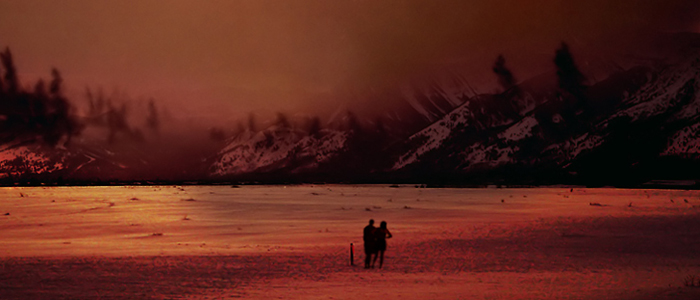
05 Oct The Martian Chronicles
“Do you ever wonder if–well, if there are people living on the third planet?’ ‘The third planet is incapable of supporting life,’ stated the husband patiently. ‘Our scientists have said there’s far too much oxygen in their atmosphere.” – Chapter ‘Ylla’ from “The Martian Chronicles”
What better way is there to start a book than by denying the existence of its readers? Especially when this literary trick accurately marks the ironic absurd that consecrates Bradbury’s “The Martian Chronicles” not as an encounter between the human and alien races, but as a cheeky and silly human monologue whose puniness contrasts deeply with the magnificence of the universe.
For a book about space colonization (or space as “the final frontier”), “The Martian Chronicles” talks little (or none at all) about the conflict between alien races, about one civilization struggling to win over the other: Martians telepathically sense the Earth people approaching in their dreams at first and are “contaminated” with their human songs. By the time the Second Expedition lands on Mars, the Martians already suffer a form of “human” dementia. The actual human settlers pass on as alien nut-jobs who have telepathically constructed their own illusions and eventually end up shot by a doctor. The failed landings on Mars usually end with death that is random, with drama of the domestic sort, or with that feeling of just being at the wrong place at the wrong time. And when the fourth expedition finally succeeds, hinting to the probability of some serious future conflict, the whole Martian population dies of a mere chickenpox:
“Chicken pox, God, chickenpox, think of it! A race builds itself for a million years, refines itself, erects cities like those out there, does everything it can to give itself respect and beauty, and then it dies. Part of it dies slowly, in its own time, before our age, with dignity. But the rest! Does the rest of Mars die of a disease with a fine, or majestic name? No, in the name of all that’s holy, it has to be chicken pox, a child’s disease, a disease that doesn’t even kill children on Earth!”. – Chapter ‘– and the Moon Be Still as Bright‘ from “The Martian Chronicles”
This is convenient, ironic and unsurprising. Just as in the “Night Meeting” the human and the Martian meet and can contemplate each other’s thoughts, but cannot touch each other because they supposedly live in parallel dimensions.
Bradbury’s Martians seem to have lived in a parallel dimension from the very beginning. They belong to the sphere of the ideas and only confront the human colonizers at the level of the allusory. The only REAL Martians are the surviving settlers from the end, that have witnessed the destruction of the Earth and believe in a clean new beginning. Bradbury, in the “The Martian Chronicles” is mainly concerned with humanity being given a second chance on another planet and how they could ruin this second chance with the same American, consumerist and shallow discourse that reeks of too much politics. The conflict between humans and Martians is solely a conflict of ideas – a contrasting backdrop: the cliché versus the sacred, the artificial versus the innate.


Daniele Giardini
Posted at 11:50h, 21 OctoberI always had a soft spot in my heart for The Martian Chronicles. I read it as a kid, and it impressed me as a weird and poetic collection of cruel fairy tales, shining with some gold. A beautiful masterpiece that I don’t dare to read again, because I fear I might not like it anymore, and don’t want to lose the good memories.
Ana Todor
Posted at 12:04h, 23 OctoberThat is a lovely and melancholical way to describe the book. Unfortunately I didn’t know English when I was little to actually get a glimpse into Bradbury’s world at that age (and it’s a pity, really). But I have the same feeling about one Romanian writer – Mircea Eliade and I highly recommend you to read some of his fantastical short stories if you get the chance.